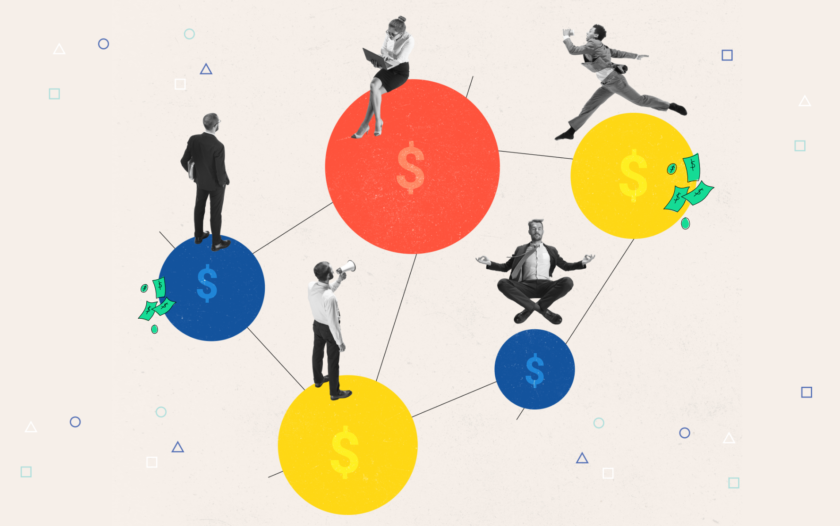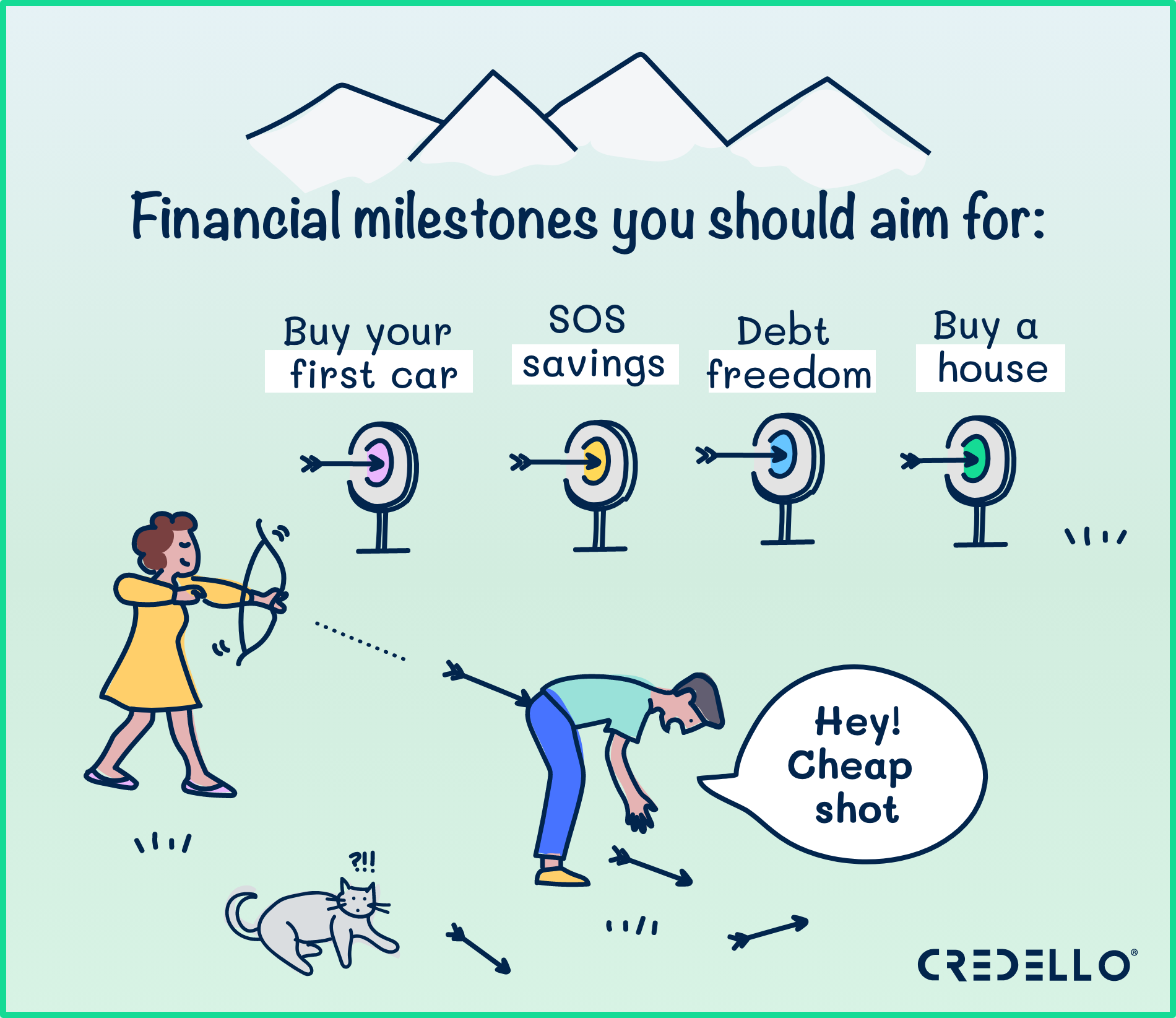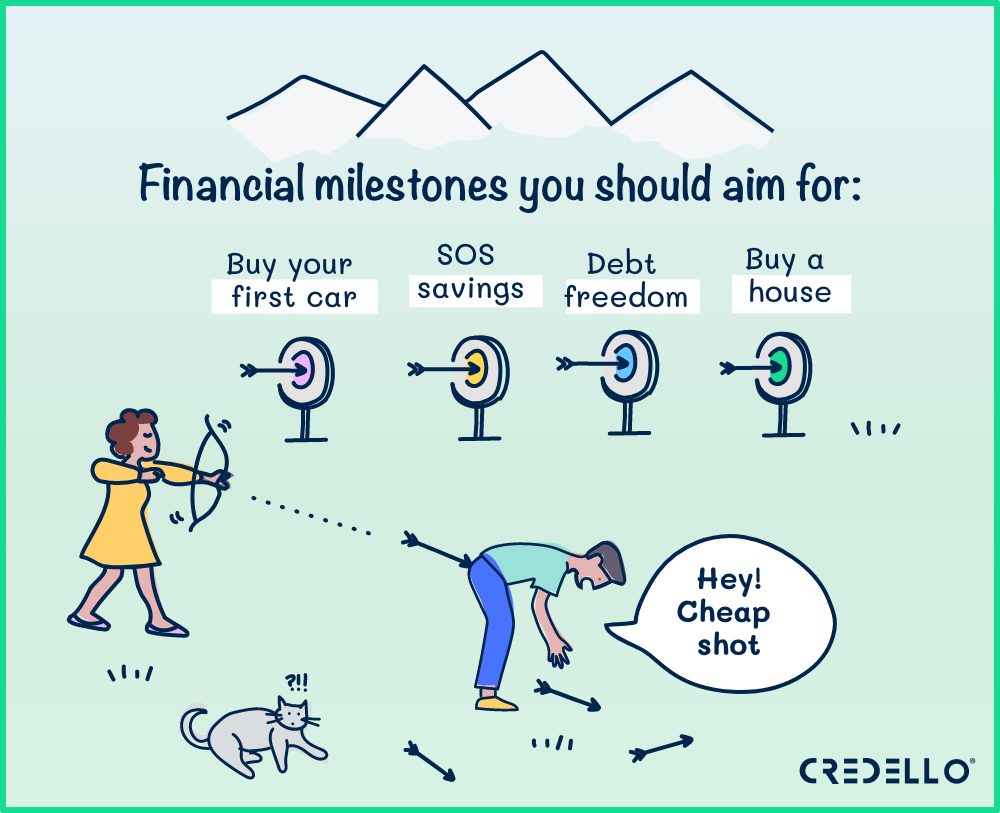5 Financial Skills Every 20-Something Needs to Master
About Anouare
Anouare is a seasoned writer, editor and content strategist who started her career as a lifestyle journalist before stepping into leadership roles at publications such as AskMen and Goalcast. From editorial strategy to content marketing and project-management, she has tackled various challenges in digital media and discovered her passion for mentoring others in the process. She loves a good money mindset book and believes you can create your dream lifestyle by being yourself.
Read full bio
Hindsight is 20/20. When it comes to money, a lot of people enter their 30s and 40s with wisdom they wish they had applied earlier in life. But what if hard-earned experience and regrets didn’t have to be part of your personal finance journey? What if you were lucky enough to learn crucial financial skills in your 20s? You’d set yourself up for success later in life.
“Your twenties are an important time because you can build important financial habits that will impact you for decades to come. If you start saving and investing in your twenties, you will reap the benefits of compound interest. Compound interest rewards you for starting early, even if you can only afford to save a small amount,” says personal finance writer and speaker Zina Kumok, a member of Credello’s Expert Review Board.
From increasing your earning potential to learning how to invest, here are four financial skills every 20-something needs to master.

Don't let debt weigh you down
One big way to be successful in your 20s is to simply stay on top of all your payments. That is where MyCredello comes in.
One big way to be successful in your 20s is to simply stay on top of all your payments. That is where MyCredello comes in.
Earning
Whether you just finished college, or you’ve chosen a different path, chances are, you haven’t maximized your income potential in your twenties yet. It’s normal: You’re likely still building professional career experience. From getting a side hustle to round out your months to negotiating better pay, earning more in your twenties is a powerful money move.
Don’t make the mistake of thinking that just because you’re junior, you shouldn’t ask for a raise or negotiate your salary before accepting a job offer. Always do your market research to find out salary ranges for your role in your area. Practice advocating for yourself at work.
Investing
Earning more is great – but it’s only one part of the equation. Learning how to make your money work for you before you turn 30 comes with a host of benefits later in life. You can thank the compound effect: The sooner you start investing, the more you’ll earn in the long run.
“I wish more young people understood that investing should be boring, not exciting. Too many people think that investing means buying a stock, waiting for it to increase and then selling it shortly after. But investing successfully usually means buying a few types of mutual funds, preferably index funds, and not touching the money until you’re ready to retire,” says Kumok.
You don’t need thousands to get started either. “I think more young people should learn about investing and why it’s crucial to start doing it as soon as possible. Many people think it’s not worth investing unless you can afford to put away hundreds each month. But even contributing $50 can add up over time,” adds Kumok.
Budgeting
Some people learned how to budget from their parents. But many adults were never taught how to create a budget even though it’s arguably one of the most important life skills to possess. Teach yourself if you must. Understanding how much money is going in and out every month and feeling on top of your financial decisions is crucial if you don’t want to end up living above your means and drowning in debt.
Even the simple act of mapping out your fixed expenses (costs that don’t change, such as your rent) and variable expenses (costs that may vary month-to-month, such as your groceries) can go a long way in creating a sustainable budget. Start budgeting in your twenties and your bank account will thank you later.
Saving
The beauty of budgeting is that you’ll know exactly how much money you can put aside in your savings account – and you may even automate those payments to pay yourself first with every paycheck.
From having an emergency fund to hitting savings goals that will empower you to invest in real estate or beef up your investment account, saving is a financial habit that you should pick up early in life.
One way people in their 20s are budgeting and saving is by living at home with their parents – according to U.S. Census Bureau data, almost 50% of Americans between 18 and 29 live at home. Of those living at home, only about 40% are getting charged rent by their parents, though half are paying less than $500 a month. By staying home and saving on costs like rent, utilities, groceries, and other living expenses, they can save thousands of dollars a year that can go toward things like paying off debt or saving for the future.
Building your credit score
Every 20-something should also be aware of their credit score. Staying away from credit at all costs won’t help you build credit history, so, it’s essential to have some sort of credit activity early in life to nurture your credit score.
You don’t want to make the common mistake of being reckless with your credit in your twenties. Pay your bills on time and make more than the minimum payments. Ideally, pay off your entire credit card balance every month to avoid high-interest rates. Make sure your debt-to-income ratio is reasonable. Do what you can to maintain good credit.


Bottom line
Your 20s are pivotal for your finances. You don’t need to be perfect or beat yourself up if you’ve made some money mistakes. But it’s never too late or too early to master the financial skills above, which create the foundation for a healthy financial future.









